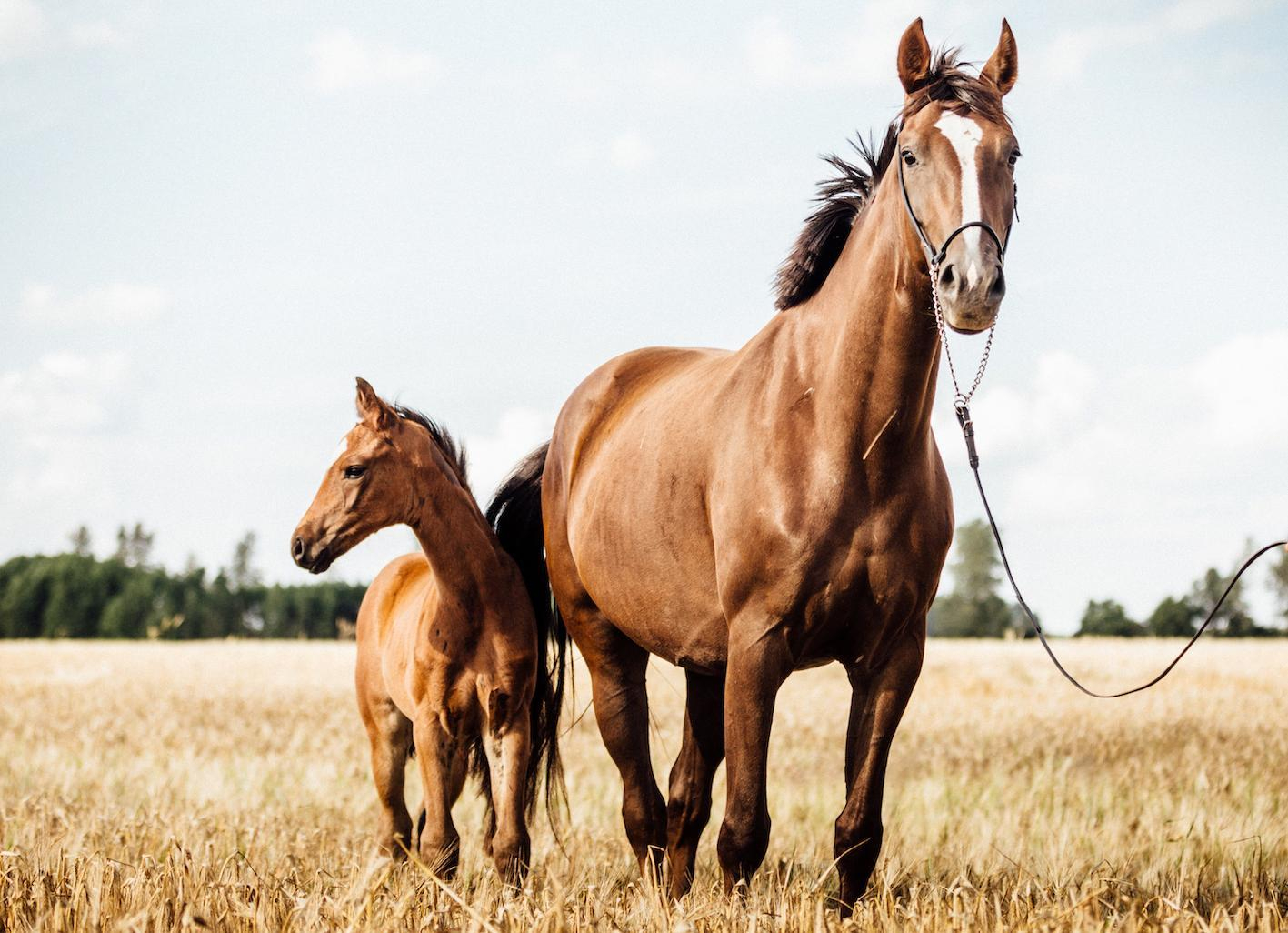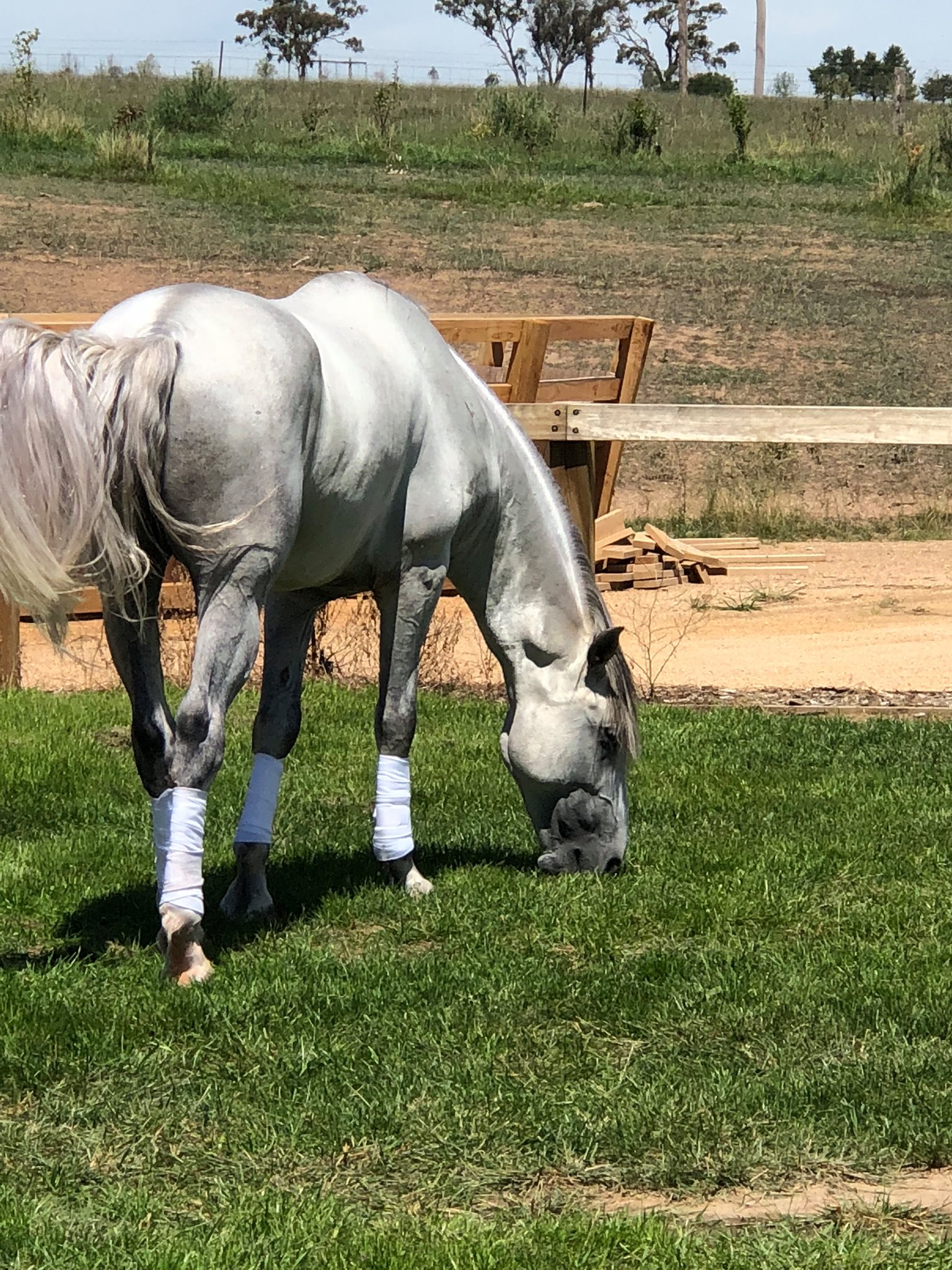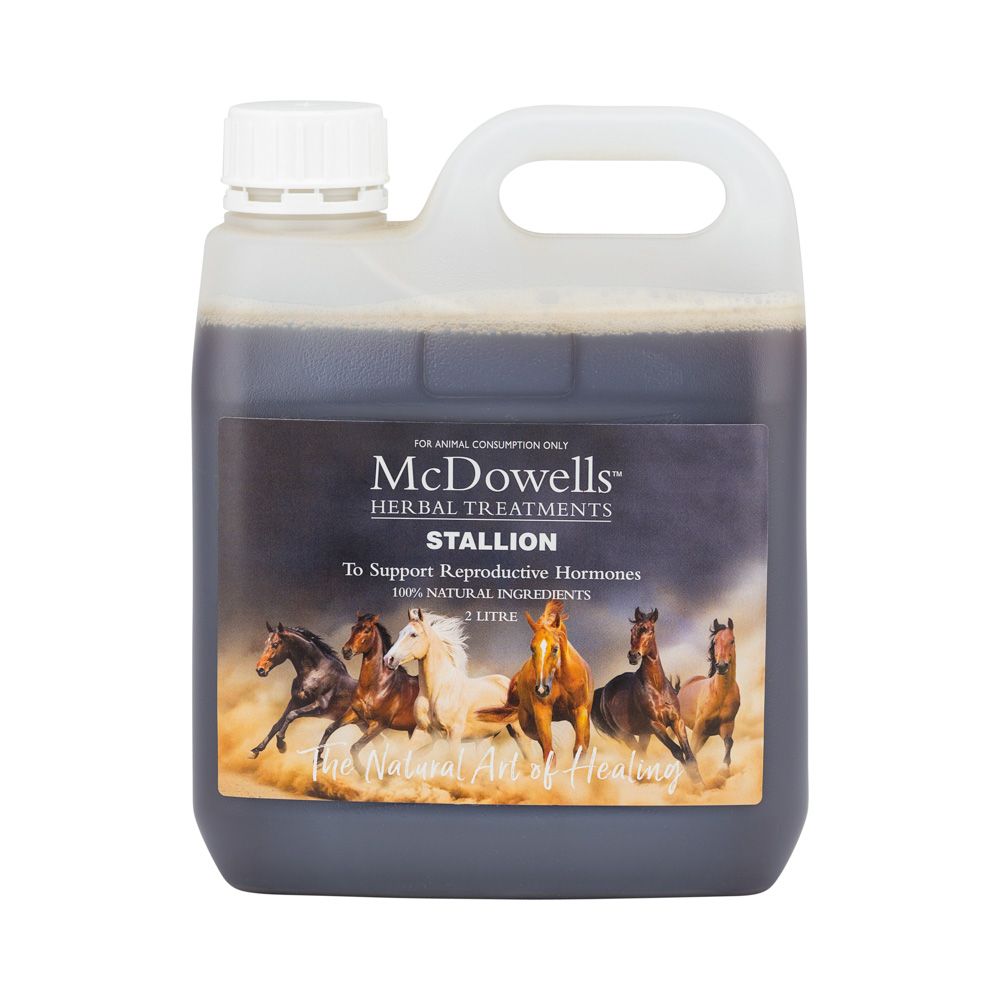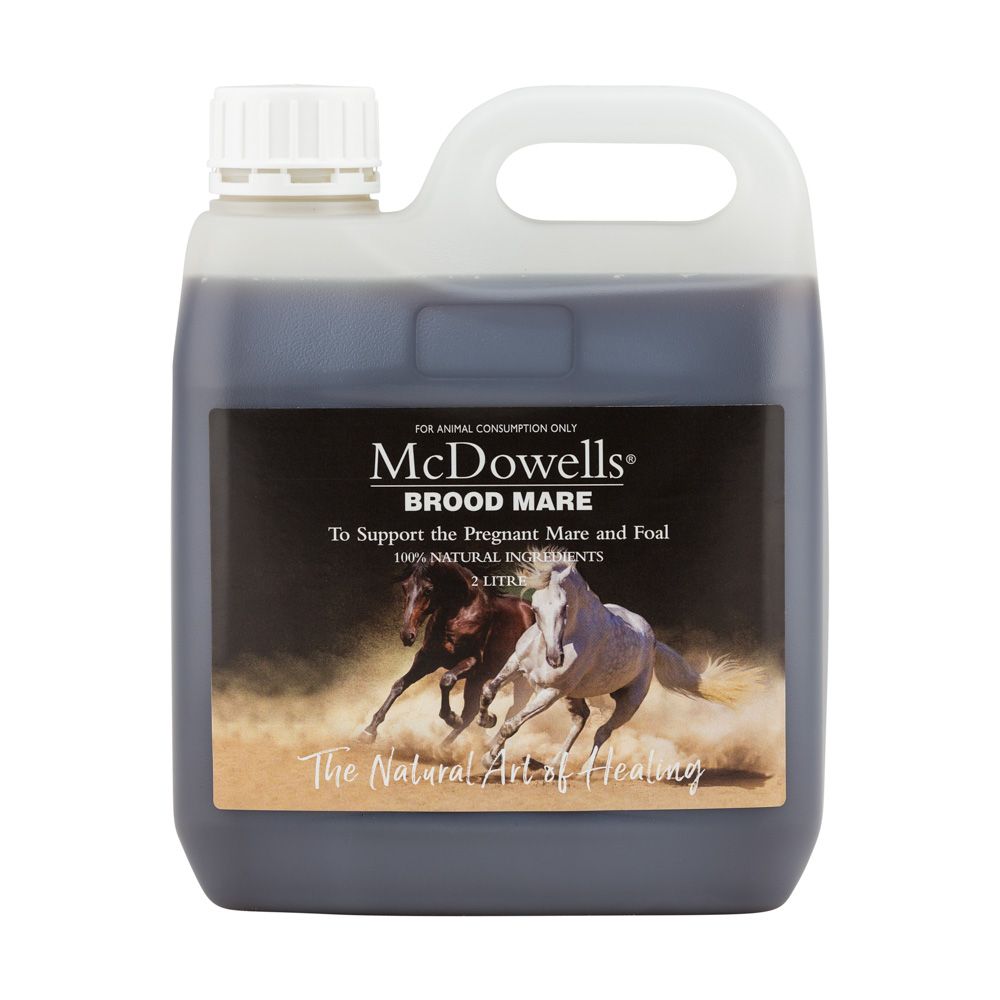Handling and breeding stallions, serving mares, weaning and gelding can all be done with a much more natural approach. In wild horses, behaviours of herd centre around the social life which occur within a group which consists of a dominant stallion and his mares. Stallions in the wild will interact with a mare (and vice versa) for hours or even days before mating.

The Stallion
In modern breeding situations, human-controlled horse breeding frequently involves the mating of horses which are unknown to each other. At Winterwood Farm we have allowed Remi to interact, and get to know the mares. He's had good ground handling and is a mild mannered stallion. The McDowell Stallion Tonic also promotes nervous stability. It also stimulates the reproductive hormones and increases sperm count.
When Remi served the mares we used 'natural covering' sometimes referred to as “hand breeding". We used a cavesson that is frequently recommended by many Spanish classical trainers - modified with a soft sheepskin protection over the nose. This cavesson is so effective and allows for full control by the handler without any force, undue pressure or damage as can be caused by anti-rearing bits.
The mares weren't restrained by rope, hobbles or a twitch. Efforts are taken to reduce the potenial risks to mare, stallion and handlers but Remi, the stallion is trusted to be gentle and well behaved. The mares are observed before hand to ensure they are ready to stand. Teasing is used to encourage a mare to show estrous behavior which includes showing signs such as leaning toward the stallion, raising their tails, squatting, “winking”, and urinating. Some mares might take some time before they show signs of being in heat.

Remi grazing whilst waiting for the mares
The mare's cycles
In most breeding establishments the mares usually injected with prostaglandin (PG) hormone to encourage the release of the ovum 8 hours after injection so that mares can be artificially inseminated or served on a day that suits the vets or stud. Whilst in this day and age of 'factory farming' this seems plausible and practical, this method has zero respect for the mares natural cycles, habits or requirements or the flow of nature.
Cath has been supporting many mare owners to achieve a natural cycles and successful conceptions and births through the use of herbs and natural feeds, (like the Brood mare formula) as well as encouraging herd behaviours to enable all the mares to begin cycling at one time.
When handling the mares for breeding this has proven very effective. On our own small stud we had the mares all synchronised so that when we covered the mares with Remi, we could do this all in one morning.
Our stallion handler, Steve Mannix, was surprised at being able to do this as well as we did given that all the animals involved were maiden. Remi had only ever covered mares (we assume) in the paddock when he was a very young colt.
References:
McDonnell, S. M. 2000 Animal Reproduction Science, 60, 211-219.
https://thehorse.com/14075/return-to-nature-with-pasture-breeding/
https://thehorse.com/129053/live-cover-management/



